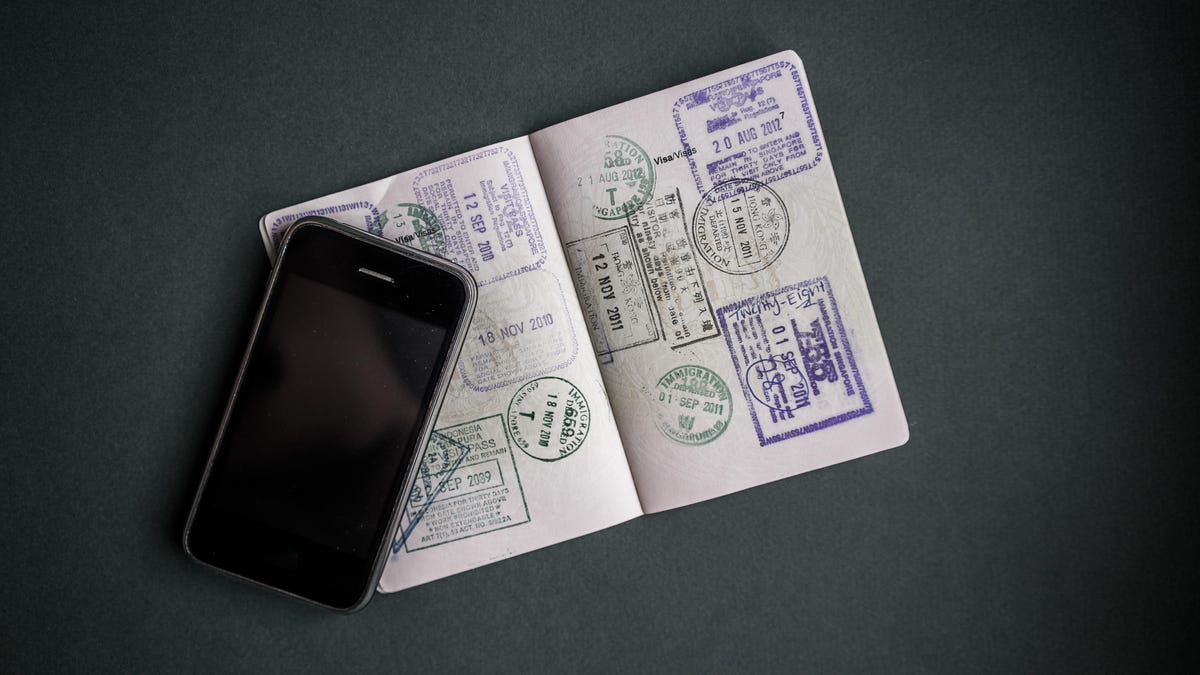US border search demand violated Apple employee's constitutional rights, ACLU says
The civil rights organization is seeking an investigation into the "interrogation" of the Apple employee.

Border control officers violated an Apple employee's rights as a US citizen when they detained him for an hour and demanded that he unlock his iPhone and Mac for their scrutiny, the American Civil Liberties Union said in a civil complaint filed Tuesday.
Andreas Gal, who founded an AI startup Apple acquired after stepping down as CTO of Mozilla, flew back to the US from Sweden on Nov. 29. Instead of breezing through the Global Entry border control system as usual at San Francisco International Airport, he was redirected to a room by Customs and Border Protection agents.
There, three armed agents in military clothing asked questions about his work at Apple and Mozilla and his interactions with Canadian co-workers, the complaint says. They repeatedly asked him to unlock his Apple-issued phone and laptop, according to the complaint, an action he told them he'd take only if he could clear it with Apple or his lawyer. They threatened to keep his devices and "told him that he was committing a federal crime" by refusing them access, the complaint says.
"If the government intended to scare me, they certainly succeeded. Ever since, I travel in fear," Gal said in a blog post Tuesday. "The time is overdue for Congress to step in and provide meaningful oversight and legislation to reign in CBP's egregious misconduct."
The case highlights the complications caused by the increasing number of electronic devices people carry into the country. Some US lawmakers support proposed laws requiring border control agents to obtain a search warrant before searching electronics devices. Such searches are a big deal, with authorities scrutinizing 30,200 computers and phones in 2017, up 60 percent from 2016.
The Department of Homeland Security and Apple didn't immediately respond to requests for comment.
Gal was born in Hungary and grew up in Germany, where he's also a citizen. He became a US citizen in 2016, he said. Gal worked at Mozilla, concentrating on speeding up web-based JavaScript software, and left in 2014 to found startup Silk Labs, the AI start-up Apple bought.
Violating US Constitution?
The ACLU argues the situation violated Gal's First Amendment rights to free speech and Fourth Amendment rights against unlawful search and seizure. The organization seeks an investigation into Gal's case and whether it violated the Constitution and Customs and Border Protection policies.
It's not yet clear if the government will take any action over the case, but that's what ACLU attorney Jacob Snow hopes. "The DHS Office of Civil Rights and Civil Liberties exists to investigate these kinds of abuses, and we are hopeful that they will do so here," Snow said.
Long gone are the days when data on our phones was limited to a list of recently called phone numbers, though that of course can be very sensitive.
"Much information that courts have recognized as intensely private can be contained on people's mobile devices, including internet browsing history, medical records, historical cell-phone location data, email, privileged communications and associational information," the ACLU complaint (embedded below) argues.
Border agent search privileges
Border agents have broad but not unlimited privileges, the Department of Homeland Security says on its website.
For example, at Border Patrol checkpoints, agents don't have "carte blanche to automatically search persons and their vehicles," the department says. "In order to conduct a legal search under the Fourth Amendment, the agents must develop particularly probable cause to conduct a lawful search. Probable cause can be developed from agent observations, records checks, non-intrusive canine sniffs and other established means."
Just about all of us have private information on our phones, but Gal's case has another complication: He works for Apple, a company that goes to great lengths to maintain secrecy about its future products. Apple restricted access to Gal's devices through a nondisclosure agreement, the ACLU complaint says.
"Gal never refused to provide the passcodes to access the electronic devices in his possession, he only asked that he be allowed to consult with an attorney to ensure that he would not violate non-disclosure agreements with his employer," the complaint says.
The ACLU already has sued DHS over earlier cases involving searches of electronic devices at the border.
The ACLU hasn't decided whether to file a lawsuit over Gal's case, Snow said. Although the agents never got access to Gal's devices, they did revoke his Global Entry status, he said. "It is important to continue to shine a light on these improper practices."
First published April 2.
Update, April 3: Adds comment from ACLU.

